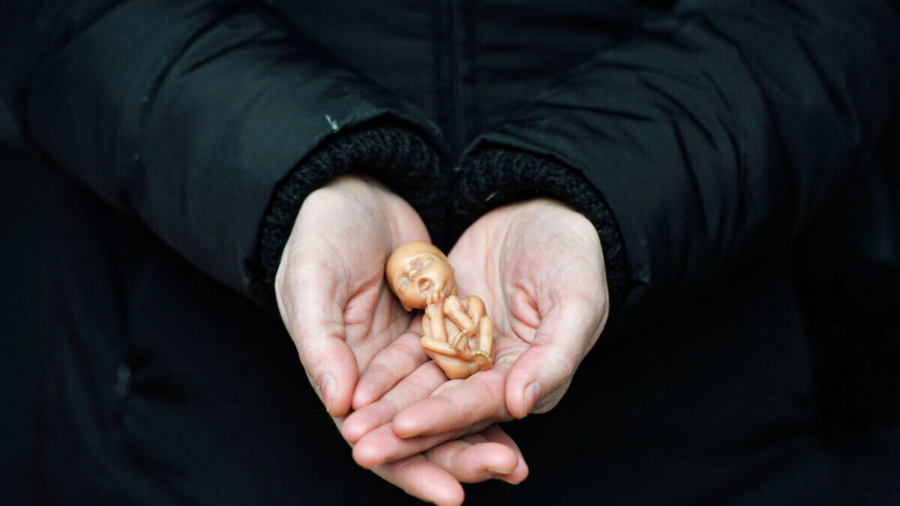The Indiana Supreme Court issued an order on Oct. 12 that bars the state from enforcing a near-total abortion ban while the court considers whether the ban is in violation of the state’s constitution.
It comes after a judge blocked the new abortion ban on Sept. 22, putting it on hold temporarily amid ongoing litigation.
State Attorney General Todd Rokita, a Republican, appealed to the Indiana Supreme Court to lift the preliminary injunction, as well as to take over the case, bypassing the typical intermediate step of it being considered by the state appeals court.
“Planned Parenthood can present no textual or historical argument in support of a right to abortion, and the Indiana Supreme Court rightly concluded that it needs to resolve the issue right away,” Rokita said in a statement.
The five-member court on Oct. 12 denied the request to lift the preliminary injunction, but agreed to take up the case, and scheduled a hearing on the lawsuit for Jan. 12, 2023.
All five members of the court, who were appointed by Republican governors, did not explain their decision. The order, signed by Chief Justice Loretta Rush, said “a majority” of the court agreed with its provisions but gave no further details.
The lawsuit was filed by the American Civil Liberties Union (ACLU) of Indiana, which is representing the abortion clinic operators, on Aug. 31 (pdf). The plaintiffs include Planned Parenthood, Whole Woman’s Health Alliance, All-Options, Inc., Women’s Med Group Professional Corporation, and a doctor.
They argued that the state constitution protects access to abortion and that Indiana’s new abortion ban violates the state constitution.
Indiana became the first state to introduce a tighter ban on abortions after the U.S. Supreme Court on June 24 repealed Roe v. Wade. The abortion ban—also referred to as SB1—had taken effect on Sept. 15 before it was put on hold on Sept. 22. It was approved by Indiana’s Republican-majority Legislature and was signed into law by Gov. Eric Holcomb on Aug. 5.
The legislation bans all abortions, except in the case of incest, rape, a diagnosis of a lethal fetal anomaly, or in circumstances where abortion is determined necessary to protect the life and physical health of the mother. The rape and incest exceptions are limited to 10 weeks after fertilization; and in such cases, victims would not be required to sign a notarized affidavit attesting to an attack.
Abortion providers violating SB1 stand to have their licenses revoked as well as face fines of up to $10,000, and prison terms of up to six years.
Abortion to Remain Legal for Now
The Indiana Supreme Court’s order on Oct. 12 means that for now, abortion will continue to remain legal in Indiana up to 20 weeks after fertilization, or 22 weeks of pregnancy. The procedure is subject to other pre-existing regulations such as requirements for two separate trips to an abortion provider, an ultrasound, informed consent, and more.
Planned Parenthood, ACLU, Whole Woman’s Health Alliance, the Lawyering Project, and Women’s Med issued a joint statement, saying: “It is a tremendous relief to know that abortion will remain accessible and legal in Indiana while we continue to fight this ban in court.”
Indiana Right to Life CEO Mike Fichter said in a statement in response to the Indiana Supreme Court’s decision that the organization is “deeply disappointed.”
“We estimate at least three thousand unborn babies, whose lives otherwise might have been saved, will now needlessly die from abortion as the law remains blocked,” Fichter said. “Thousands more will die as we await a final ruling after the January hearing. Although we are confident the law will be upheld, it will be far too late for those whose lives will be lost as this is argued in the courts.”
According to state data (pdf), a total of 8,414 abortions were carried out in Indiana in 2021.
Bans on abortion at any point in pregnancy are currently in place in 14 states. In Wisconsin, clinics have stopped providing abortions amid litigation over whether an 1849 ban is in effect. Georgia bans abortions once cardiac activity can be detected and Florida, Arizona, and Utah have bans that kick in after 15 or 18 weeks gestation.
The Associated Press contributed to this report.
From The Epoch Times

